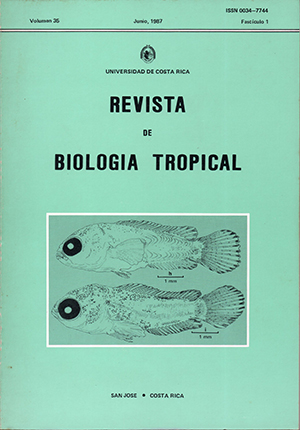Resumen
A lyophilized aqueous leaf extract of Cecropia obtusifolia proved to be antihypertensive when
intravenously administrated to conscious spontaneous hypertensive rats. Forty-five minutes after injection, the maximum fall in arterial pressure (-23.5% relative to preinjection values) was seen and recovery was not complete by the end of the 1 80 min observation periodo The extract was also given to pre-hypertensive SHR and normotensive rats. The fall in blood pressure was more conspicuous in the two SHR groups and was not accompanied by changes in cardiac frequency in any group. This would appear to rule out either a direct or indirect involvement of the heart in regard to the observed hypotension.
Citas
Ammon, H. P. T. 1985, Forskolini: from an Ayuverdic remedy to a moderm agent. Plant. Med. 51: 473-477.
Guzmán, D. 1974. Cecropia peltata. Especies útiles de la flora salvadoreña. Editorial Ministerio de Educación. El Salvador, p. 92-94.
Ojewole, J. A. 1981. Mechanism of the hypotensive effect of tetramethylpyrazine an amide alkaloid from the stem of Jatropha podagrica. Plant. Med. 41: 281-7.
Salas, I. G. 1985. Mecanismo de acción cardiovascular de los extractos frescos liofilizados de Cecropia obtusifolia. Bertol. Tesis de Maestría, Universidad de Costa Rica, San José, Costa Rica.
Salas, I. & O. M. Morales. 1986. Hypotensive effect and site of action of lyophilized extract of Cecropia obtusifolia. Plant. Med. (in press).
Vidrio, H. 1982. Hypotensive Activity of Cecropia obtusifolia. J. Pharm. Sci. 71: 475-476 .

Esta obra está bajo una licencia internacional Creative Commons Atribución 4.0.
Derechos de autor 1987 Revista de Biología Tropical

